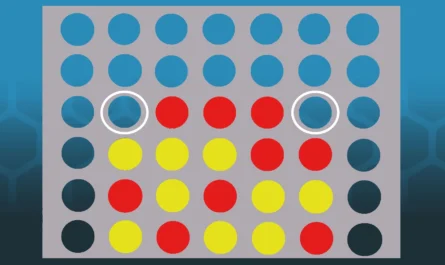In the world of mobile app development, there is a common misconception that the most successful apps come from grandiose ideas that are executed flawlessly from the get-go. However, this couldn’t be further from the truth.
In reality, the most successful mobile apps are the result of a carefully planned and executed MVP (minimum viable product) stage. An MVP is a version of your app that contains only the most essential features, allowing you to test it in the market and gather valuable feedback from early adopters. This feedback is crucial to the future success of your app, as it allows you to refine your product based on actual user experiences and preferences. There are several reasons why every mobile app needs an MVP stage.
Firstly, an MVP reduces the risk of investing time and resources into a product that may not succeed in the market. Secondly, it allows you to test your app’s core features and functionalities, ensuring that you are building a product that solves a real problem for your customers.
Page Contents
1. MVPs can save development costs
The process of MVP app development is a pivotal stage in mobile app creation, as it empowers developers to test their concept using limited resources. MVPs, which are streamlined versions of the final product, focus solely on the essential features. This approach enables early user feedback, aiding developers in making informed decisions about feature prioritization during subsequent development phases.
Moreover, MVP app development can significantly reduce costs by minimizing the time and resources allocated to potentially irrelevant features. By engaging users in testing a basic iteration of the app, developers can pinpoint the crucial aspects while avoiding unnecessary complexity. Such an approach ensures that development efforts are concentrated on delivering the utmost value to the end user.
2. MVPs help validate ideas
The MVP stage is an essential part of the mobile app development process. It helps to validate ideas and reduce the risk of failure. In today’s competitive mobile app market, it is imperative to have a product that meets the needs of the users and provides a unique value proposition.
MVPs (Minimum Viable Products) are designed to provide a basic version of the app that can be tested in the real world. This stage allows for feedback and data collection, which can be used to improve the app and add new features.
MVPs are also cost-effective and efficient, as they require less time and resources to develop. By testing an MVP, app developers can make informed decisions about the app’s direction and ensure that it meets the target audience’s needs. Overall, incorporating an MVP stage into mobile app development can lead to a more successful and sustainable product.
3. Iteration is easier with MVPs

One of the key benefits of the MVP stage is that it makes iteration easier. By releasing a simple version of your product early on, you can quickly gather feedback from users and make improvements based on their needs and preferences.
This can be a much more efficient approach than holding off on release until you have a perfect, fully-featured app. Not only does the MVP stage allow you to iterate quickly, but it also helps you avoid investing too much time and resources into features that may not be well-received by your target audience. In short, the MVP stage is a valuable opportunity to test the waters, gather feedback, and refine your app in an agile and cost-effective way.
4. MVPs improve user experience
One of the most significant reasons for creating a Minimum Viable Product (MVP) stage for your mobile app is to improve user experience. By developing an MVP, you can gather feedback from users and learn how they interact with your app.
This feedback allows you to make informed decisions and implement changes that improve the overall user experience. MVPs enable you to test the app’s functionality, performance, and usability in real-world conditions, which helps you identify potential issues and fix them before the final product launch.
Moreover, by involving users in the MVP stage, you get a better understanding of what they want and need, which helps you tailor your app to their preferences and expectations. In summary, an MVP allows you to fine-tune your app and make it more user-friendly, which ultimately leads to better engagement and increased user satisfaction.
5. MVPs can attract investors

One of the most important benefits of creating an MVP (minimal viable product) for your mobile app is that it can attract potential investors. An MVP is a stripped-down version of your app that includes only the core features and functionality necessary to meet the needs of your target audience. By creating an MVP, you can demonstrate the viability of your app concept and show investors that you have a clear understanding of your market and users.
With an MVP, you can also gather valuable feedback from early users, which can help you refine your app and make it more attractive to investors. Additionally, an MVP demonstrates that you can work within a budget and timeline, which can increase investor confidence in your ability to deliver a successful app. By showing that you have a solid plan and understanding of your market, an MVP can be a powerful tool for attracting the investment you need to take your app to the next level.
In conclusion, the MVP stage is not just a necessary step in the app development process, but it is also a crucial one. Building an MVP allows you to gather valuable feedback from real users, test your assumptions, and validate your idea before investing more time and resources into it. By taking the time to develop an MVP, you can ensure that your mobile app meets the needs of your target audience and is set up for success in the long run. So, if you’re planning on developing a mobile app, make sure to prioritize the MVP stage and give your product the best chance of success.







